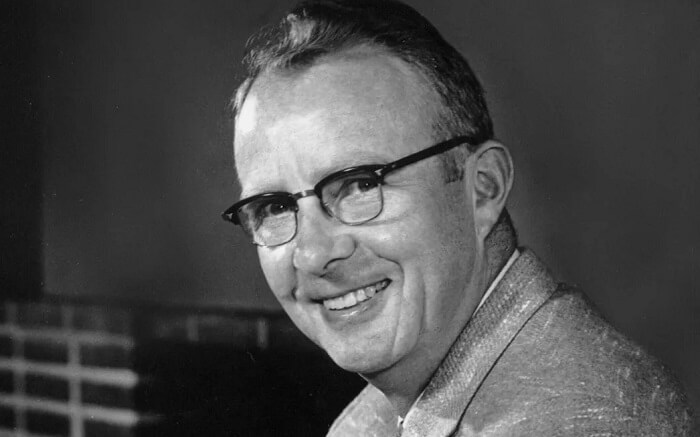Who was Luis Alvarez? Information about American physicist Luis Alvarez biography, life story, studies and contributions to science.

Luis Alvarez
Luis Álvarez (1911-1988) was a renowned American physicist of the 20th century who made significant contributions to various fields of science. He is best known for his work on cosmic rays, intercontinental ballistic missiles, radiometric dating, and the theory of mass extinction. Alvarez played an important role in the development of the atomic bomb during World War II and later worked on the Manhattan Project. He was awarded the Nobel Prize in Physics in 1968 for his contributions to particle physics. Overall, Alvarez’s scientific work had a lasting impact on the field of physics and beyond.
Early Life and Education
Luis Alvarez was born on June 13, 1911, in San Francisco, California. He was the second child of Walter and Harriet Alvarez, both of whom were schoolteachers. Growing up, Álvarez showed a strong interest in science and technology and developed a keen curiosity about the natural world.
Alvarez attended the University of Chicago, where he received a bachelor’s degree in physics in 1932 and a doctorate in 1936. As a graduate student, he worked with Arthur H. Compton, a Nobel laureate in physics, on the study of cosmic rays, which are high-energy particles that enter Earth’s atmosphere from outer space. This research laid the foundation for Álvarez’s future work in particle physics and astrophysics.
Career and Contributions to Science
After completing his doctorate, Luis Alvarez joined the faculty at the University of California, Berkeley, where he remained for the rest of his career. During World War II, Álvarez worked on the Manhattan Project, the top-secret government program that developed the first atomic bombs. He was responsible for designing the detonators that triggered the nuclear explosions.
Following the war, Alvarez continued his research on cosmic rays, using high-altitude balloons and other tools to study these particles. He also became interested in the use of nuclear weapons for peaceful purposes, including the development of nuclear reactors for power generation.
In the 1950s and 1960s, Alvarez turned his attention to the development of intercontinental ballistic missiles (ICBMs), which were becoming an important component of the Cold War arms race. He designed a device called the “linear accelerator,” which was used to test the electronic components of ICBMs and helped to ensure their reliability.
In the 1970s, Alvarez began working on the use of radiometric dating techniques to determine the ages of geological materials, such as rocks and fossils. He developed new methods for dating materials using the decay of radioactive isotopes, which allowed scientists to determine the ages of samples with greater precision and accuracy.
Finally, in the 1980s, Alvarez proposed a theory to explain the mass extinction of the dinosaurs at the end of the Cretaceous period, about 65 million years ago. He suggested that a large asteroid impact was responsible for the extinction event, an idea that was later supported by evidence from geological studies.
Overall, Luis Alvarez made many significant contributions to science during his career, particularly in the fields of particle physics, astrophysics, nuclear weapons, radiometric dating, and the study of mass extinctions. He was awarded the Nobel Prize in Physics in 1968 for his work on subatomic particles.
Death and Legacy
Luis Alvarez died on September 1, 1988, in Berkeley, California, at the age of 77. He was survived by his wife, two sons, and a daughter.
Alvarez’s contributions to science have had a lasting impact on many fields, including particle physics, astrophysics, nuclear weapons, and geological sciences. His work on cosmic rays, radiometric dating, and the study of mass extinctions have been particularly influential.
In addition to his scientific accomplishments, Alvarez was known for his advocacy of science education and his efforts to increase public understanding of science. He was a popular lecturer and writer, and he often appeared on television programs to explain scientific concepts to a general audience.
Several awards and honors have been named in Luis Alvarez’s honor, including the Luis W. Alvarez Postdoctoral Fellowship in Computational Science, awarded by the Lawrence Berkeley National Laboratory, and the Luis W. Alvarez Award for Outstanding Achievement in Computational Science, awarded by the Department of Energy. The Alvarez family has also established the Luis W. Alvarez Memorial Fund to support graduate fellowships in physics at the University of California, Berkeley.